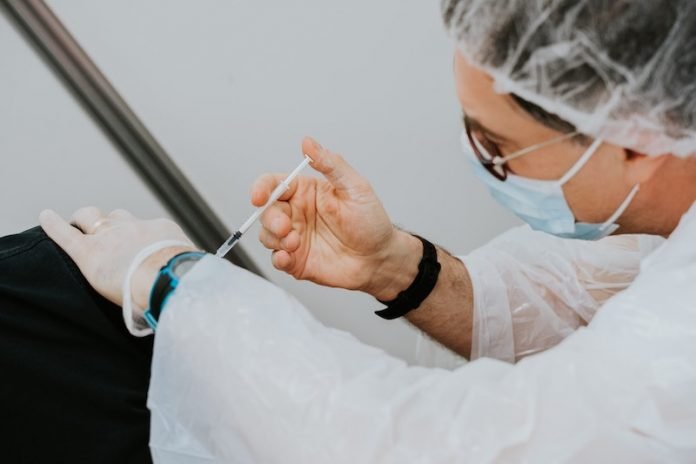
In a new study from Cedars-Sinai, researchers found a single dose of the Pfizer-BioNTech vaccine for people who previously had COVID-19 generates an immunologic response similar to that of individuals receiving the two-dose recommended sequence.
The finding strongly suggests the second dose may not be needed for individuals who have successfully recovered from a prior coronavirus infection.
The study is published in the journal Nature Medicine. One author of the study is Susan Cheng, MD, MPH, MMSc.
The vaccine that was studied, produced by Pfizer Inc. and BioNTech SE, normally is administered in two doses, 21 days apart, to provide nearly full protection against the novel coronavirus, known as SARS-CoV-2.
In the study, the team administered surveys to 1,090 healthcare workers in the Cedars-Sinai Health System who had received the Pfizer/BioNTech vaccine.
The healthcare workers also took antibody tests to gauge the response of their immune systems to the vaccinations.
Antibody levels were measured at three points in time: before or up to three days after the first dose, within seven to 21 days after the first dose, and within seven to 21 days after the second dose.
Based on the surveys, the team identified 35 individuals with prior coronavirus infections who had received a single vaccine dose and 228 individuals without prior infection who had received both vaccine doses.
Based on the antibody tests, they found that levels and responses of coronavirus-specific antibodies were similar in both of these groups.
Post-vaccine symptoms were more prominent for those with prior infection after the first dose, but symptomatology was similar between the two groups after the second dose.
The team says overall, individuals who had recovered from COVID-19 developed an antibody response after a single vaccine dose that was comparable to that seen after a two-dose vaccination course administered to individuals without prior infections.
Copyright © 2021 Knowridge Science Report. All rights reserved.



